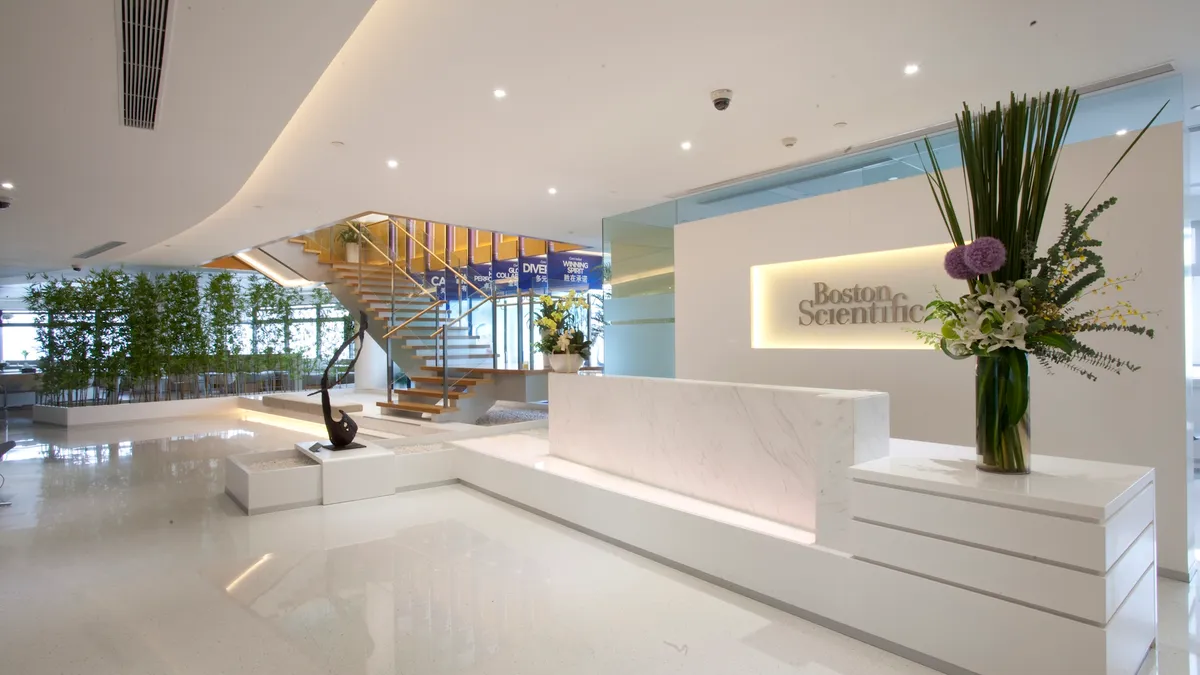Q3 trends: Boston Scientific reported third-quarter revenue growth that beat its forecast even as foreign-exchange rates and higher expenses tied to research and development curbed profit.
The Marlborough, Mass.-based firm, which is a leader in interventional cardiology, said sales climbed 8.1% in the period, surpassing the 6% to 8% increase it had previously forecast.
Higher sales of heart and vascular devices helped drive the revenue gain, with cardiology sales rising 10% over the year-earlier period, while and peripheral interventions sales climbed 5.9%.
Still, net income plunged from the same quarter a year earlier, which CFO Daniel Brennan attributed to the effect of a strong dollar on international sales and an increase in spending on research and development.
The company is looking to bolster its operating margin, which will involve “balancing certain initiatives to reduce expenses in the short term to offset supply chain and inflation headwinds,” Brennan said on an earnings call on Wednesday.
“While we had been hopeful for stronger results on the bottom line, all in all, we see this as an OK quarter — should the lower earnings be entirely Fx related, especially given the strength on the top line,” J.P. Morgan Analyst Robbie Marcus wrote in a research note on Wednesday.
Rising Watchman sales: Sales of Boston Scientific’s Watchman devices grew 26% in the third quarter compared to the year-earlier period, resulting in a “terrific quarter,” CEO Mike Mahoney said on the call. The left atrial appendage closure device is implanted in patients’ hearts to reduce the risk of stroke for patients with atrial fibrillation, and faces a rival in Abbott Laboratories’ Amplatzer Amulet device.
Sales were helped by an expanded label the Watchman FLX received, allowing patients to take anti-platelet therapy instead of oral anticoagulants and aspirin for 45 days after the device is implanted.
“Some physicians converted back to Watchman FLX now that we have that label,” Mahoney said.
The company is running two additional trials, called Option and Champion, to further widen the market for the device.
Pre-authorizations slow neuromodulation sales: With sales of $221 million in the third quarter, Boston Scientific’s neuromodulation segment was little changed compared to last year, which the company attributed to an increase in pre-authorization denials from insurers for spinal cord stimulation in the U.S.
Demand from patients remains strong, Mahoney said, although he expects the problem with pre-authorizations to continue into the fourth quarter. In the meantime, the company is working on helping doctors streamline the process with insurers so that they can get paid and patients can receive treatment.
Forecast: Boston Scientific raised its revenue forecast for 2022, and now expects 9% growth on an organic basis, which excludes the effect foreign-exchange rates. It previously set a range of 8% to 9% revenue growth.
The company lowered its profit forecast for the year and now expects a range of earnings per share of $1.71 to $1.74, compared to its prior forecast of $1.74 to $1.77.
Boston Scientific’s shares rose 2.2% in mid-morning trading to $42.21.












